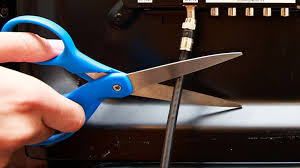Part of a year-long series about resilience in Jewish spiritual life.
The latest school shooting, in Parkland, Florida, got me thinking about the need for connection and those who feel cut off from society. The tragedy of the victims and their loved ones – and, yes, the tragedy of the shooter – reminds about the critical link between resilience and connection.
In Jewish tradition, the consequence of certain sinful behaviors was to be cut off, – to be karet – not the diamond-size karet, but being separated from community. The idea was that some behaviors so detract from holiness that they rupture a bond between us and God. The result is being cut off from the community whose totality is called to represent the sacred.
How well does this karet idea work in our modern world? What does being “cut off” mean in this internet age of connectivity?
Today’s cyber-world – seemingly obsessed with feeds, tweets, likes and swipes –sometimes seems to connect avatars more than it connects real people in their wholeness. For all the internet’s awesome capacity to inform and bridge gaps, how often does the latest post so absorb us in our smart devices and click counts that we get cut off from real people, real communities and real emotions? Count the number of times you check your devices at dinner and see for yourself.
On the other hand, technology powers real connections of transformation. The internet made the #metoo movement possible. It broadcast to the world last week’s news that Florida students bolted classrooms to lobby state lawmakers on gun control. It helps people to share emotions and ideas that maybe they aren’t easily able or safe to share by other means. By making communication possible as never before, technology makes connectivity possible as never before – and with connectivity comes the power of numbers and thus social transformation.
The issue is that connectivity and connection aren’t the same thing. The internet invites trolling for victims, posts to build weapons, conspiracy theories and fake avatars spreading fake news designed to destroy, not create. We forget that the internet – like any machine – has no values. Its values are in how we use it (not how it uses us).
Someone who aims to abuse, mislead or destroy might be capable of connectivity – but that’s not real connection. That person already feels cut off psychologically, emotionally and spiritually – but they still can troll online for victims, spread fake news, build bombs, buy guns and more. In the digital age, more and more people feel cut off, but how possible is being karet if someone can get online?
The key is that community implies covenant. We covenant to live basic ideals, and community responds by abiding basic standards. So too in Judaism: karet (to be cut off) comes from koret, to “cut” a brit (covenant). Our society, our technology, our tools, our machines, our devices – all ask a covenant of real connection and real values.
Resilience arises not in connectivity but in real connection, real community. The price of breaking the covenant we cut is to feel cut off – but when the web links us all as never before, we all pay the price when someone feels disconnected. No longer is antisocial behavior easily seen and contained: it can build an avatar, build a fake news site, build a bomb, buy a gun and kill. And the price is so painfully high.
At the societal level, this new reality means that society must invest more (and more wisely) in people – and especially younger people. We must trace causes of social disconnection to their sources and keep the covenant with them. We must track down and actively fight the online hate mongers that gave succor to the Parkland shooter. We must keep building healthy communities so that people feel more connected and less need to seek radical online hate. In short, the internet age challenges us to renew the resilience of our social covenant.
At the individual level, we must reclaim our power over technology so that it serves us – not the other way. Too often we are slaves to our devices. We’re not supposed to be slaves to anything, and compulsions sap resilience. Join me in the National Day of Unplugging, corresponding with the Shabbat of March 9-10. Put down the cell phone, close the computer, unplug from the web, give all of these technologies a Shabbat, and see for yourself how real connection is so much more than connectivity.
We don’t have to be karet. Nobody needs to feel cut off. The power, so to speak, is literally in our hands.
– Rabbi Evan J. Krame & Rabbi David Markus




